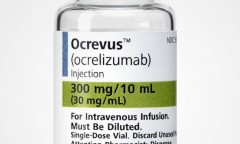By Arthur Dominic J. Villasanta , | March 31, 2017

Individuals with a higher consumption of legumes had a 35 percent lower risk of developing Type 2 diabetes.
New research confirms the value of legumes such as lentils, chickpeas, beans and peas in protecting against Type 2 diabetes.
Legumes are a food group rich in B vitamins. They contain different beneficial minerals (calcium, potassium and magnesium) and sizeable amounts of fiber.
Like Us on Facebook
They're also regarded as a low-glycemic index food, which means that blood glucose levels increase only slowly after consumption.
Due to these unique nutritional qualities, eating legumes regularly can help improve human health. In fact, the Food and Agriculture Organization of the United Nations (FAO) declared 2016 as the international year of legumes to raise people's awareness of their nutritional benefits.
While legumes have long been though to offer protection against Type 2 diabetes (a significant health problem worldwide affecting more than 400 million adults in 2015), there's been little research to confirm this association to date.
Researchers from the Human Nutrition Unit of the Universitat Rovira i Virgili (URV) in Spain (one of the top 500 universities in the world), in collaboration with other research groups in the PREDIMED study, evaluated the association between the consumption of the different sub-types of non-soy legumes and the risk of type 2 diabetes among individuals at high cardiovascular risk.
They also evaluated the effect of replacing other protein- and carbohydrate-rich foods with legumes on the development of the disease.
Researchers analyzed 3,349 participants at high risk of cardiovascular disease but without type 2 diabetes at the beginning of the PREDIMED study.
PREDIMED, which stands for "Prevención con Dieta Mediterránea" (Prevention with Mediterranean Diet), was a large Spanish primary prevention trial. It included 7,447 Spanish participants (55-80 years, 58% women) who were at high risk for cardiovascular disease, but otherwise healthy (initially free of cardiovascular disease).
After four years of follow-up, results revealed that compared to individuals with a lower consumption of total legumes -- lentils, chickpeas, beans and peas -- (12.73 grams/day, equivalent to 1.5 servings per week of 60 grams of raw legumes), individuals with a higher consumption (28.75 grams/day, equivalent to 3.35 servings/week) had a 35% lower risk of developing Type 2 diabetes.
Of the different subtypes of legume, lentils in particular were associated with a lower risk of Type 2 diabetes.
Those participants who had a higher consumption of lentils during the follow-up (nearly 1 serving/week) compare to those individuals with a lower consumption (less than half a serving per week), had a 33% lower risk of developing the disease.
Researchers highlight the importance of consuming legumes to prevent chronic diseases such as diabetes, but state that further research must be conducted in other populations to confirm these results.
-
Use of Coronavirus Pandemic Drones Raises Privacy Concerns: Drones Spread Fear, Local Officials Say

-
Coronavirus Hampers The Delivery Of Lockheed Martin F-35 Stealth Fighters For 2020

-
Instagram Speeds Up Plans to Add Account Memorialization Feature Due to COVID-19 Deaths

-
NASA: Perseverance Plans to Bring 'Mars Rock' to Earth in 2031

-
600 Dead And 3,000 In The Hospital as Iranians Believed Drinking High-Concentrations of Alcohol Can Cure The Coronavirus

-
600 Dead And 3,000 In The Hospital as Iranians Believed Drinking High-Concentrations of Alcohol Can Cure The Coronavirus

-
COVID-19: Doctors, Nurses Use Virtual Reality to Learn New Skills in Treating Coronavirus Patients










